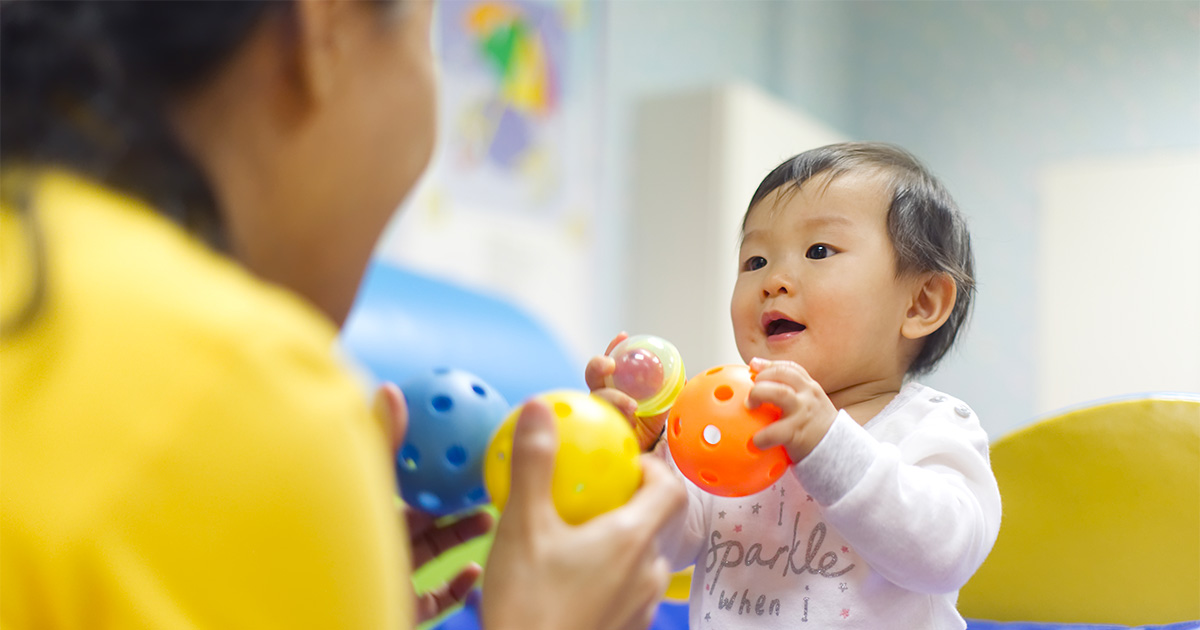- 877.624.2604
- Schedule a Tour

Early childhood researchers agree that the single most important factor in healthy brain development during infancy is responsive, nurturing interaction. This concept is called “serve and return.” It’s rooted in decades of research from organizations like the Center on the Developing Child at Harvard University (2015) and endorsed by the American Academy of Pediatrics.
How does “serve and return” work?
When infants reach out through babbling, facial expressions, gestures, or cries, they are seeking connection. Responsive adults who return that “serve” by making eye contact, using warm language, or mirroring expressions are not just comforting them; they are building the foundation for brain architecture, emotional security, and future learning.
What do we do to support this in our Infant classrooms?
Our teachers intentionally practice “serve and return” throughout the day. They narrate routines, observe and respond to infants’ cues, and offer comforting and encouraging feedback during care moments and play. For example, when an infant reaches for a toy, we might say, “You see the blue ball! Let’s roll it together.” These back-and-forth exchanges build trust, support language development, and foster curiosity. We also create safe environments for infants to explore and interact with each other. The classroom staff promote early social learning through eye contact, sound, and gestures. Every diaper change, bottle feeding, and tummy time session becomes a meaningful opportunity to connect and grow.
What can parents do at home?
You can support your child’s development with the same simple, powerful strategies. Talk to your baby throughout the day: “You’re looking at the light! It’s so bright.” Pause to allow your child to respond with a sound or expression, then follow up with a response.
These moments of connection don’t require fancy toys or special equipment. Matching games, naming shapes, or simply describing what your child is doing, turn everyday interactions into brain-building moments. Research shows that infants thrive when adults respond with warmth, intention, and consistency. These early conversations lay the groundwork for a lifetime of learning.
Additional Resources:
- American Academy of Pediatrics. (2018). Caring for Your Baby and Young Child: Birth to Age 5 (7th ed.) Bantam.
- Center on the Developing Child. (2015) Serve and Return. Harvard University.
- Weisleder, A. & Fernald, A. (2013). Talking to Children Matters: Early Language Experience Strengthens Processing and Builds Vocabulary. Psychological Science, 24(11), 2143-2152.
